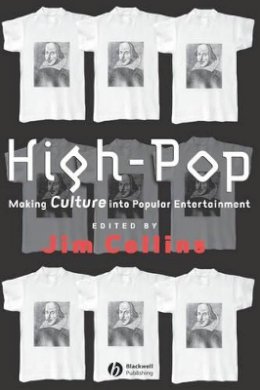
Stock image for illustration purposes only - book cover, edition or condition may vary.
High-Pop: Making Culture into Popular Entertainment
Jim Collins
€ 54.71
FREE Delivery in Ireland
Description for High-Pop: Making Culture into Popular Entertainment
Paperback. * Takes a new direction in cultural studies by focusing on elite a culturea as popular culture. * Consists of case studies on emergent phenomena in mainstream culture that have never before been given significant scholarly treatment. Editor(s): Collins, Jim. Num Pages: 248 pages, 0. BIC Classification: JFCA. Category: (P) Professional & Vocational; (UP) Postgraduate, Research & Scholarly; (UU) Undergraduate. Dimension: 228 x 154 x 14. Weight in Grams: 352.
An exploration by nine key thinkers of the popularization of elite tastes for mass audiences, High-Pop challenges the project of cultural studies to focus on all-but-ignored forms of mainstream culture.
An exploration by nine key thinkers of the popularization of elite tastes for mass audiences, High-Pop challenges the project of cultural studies to focus on all-but-ignored forms of mainstream culture.
Product Details
Format
Paperback
Publication date
2002
Publisher
John Wiley and Sons Ltd United Kingdom
Number of pages
248
Condition
New
Number of Pages
248
Place of Publication
Hoboken, United Kingdom
ISBN
9780631222118
SKU
V9780631222118
Shipping Time
Usually ships in 7 to 11 working days
Ref
99-50
About Jim Collins
Jim Collins is Associate Professor of Film, Television, and English at the University of Notre Dame. He is the author of Uncommon Cultures: Popular Culture and Postmodernism (1989) and Architectures of Excess (1995), and co-editor of Film Theory Goes to the Movies (1993).
Reviews for High-Pop: Making Culture into Popular Entertainment
"High-Pop is an important book, and a challenging one. Its wide-ranging examination of the integration of high culture into popular entertainment offers rich and provocative insights into the changing dynamics of taste, value, culture, and consumption. Just the kind of critical rethinking of earlier perspectives that cultural studies now badly needs." Tony Bennett, the Open University
